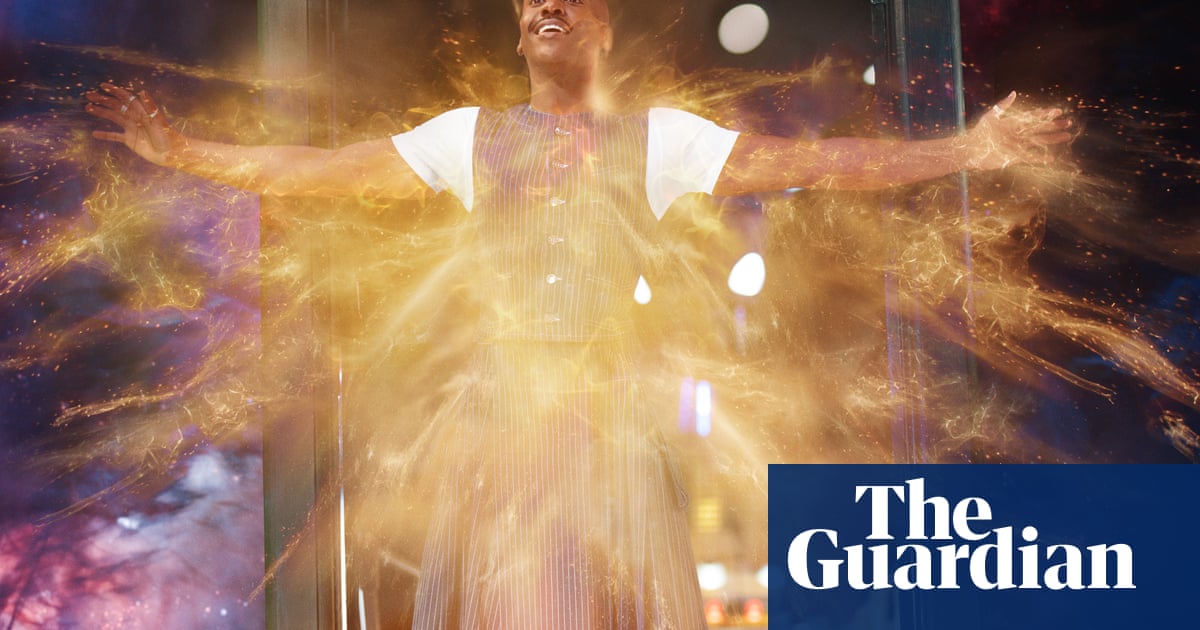At the weekend, Doctor Who attempted to pull off the holy grail of a surprise regeneration, with Billie Piper appearing to step into the shoes of the departing 15th DoctorNcuti Gatwain a move that, unless you are constantly online in the fandom rumour mills, would have come as a shock. Gatwa’s exit gives him one of the shortest ever tenures in a role that has been a fixture of British television for more than six decades.
Fresh from making waves in Sex Education, 32-year-old Gatwa is young and beautiful in a way that the Doctor has not always been. His incarnation of the Time Lord delivered scenes it is hard to imagine most of the other actors inhabiting – whether that was him clubbing, pulling off a 1960s dance number, using a glitter-canon to fly through space, or saying “babes” a lot.
The first Black man to lead the show, his era of Doctor Who sensitively explored him visiting periods of Earth’s history where his skin colour would have an impact, such as the south of the US in the segregation era inLuxwhere he was not welcome, and Lagos in Nigeria during playwright Inua Ellams’The Story and the Engine, where he said he felt he very much was.
The show was also uncompromising about this Doctor being queer, almost instantly falling for Jonathan Groff’s character in Bridgerton tributeRoguein a way that the unrequited love of Mandip Gill’s Yaz for Jodie Whittaker’s 13th Doctor only awkwardly tiptoed around.
But perhaps the thing that most characterised Gatwa’s Doctor was his open displays of emotion – showing on screen that he was not afraid to cry. However, the device was probably overused.
Seeing the self-styled “last of the Time Lords” cry over the death of a character we have barely met, as happened with Sasha 55 inThe Robot Revolution, was meant to show the audience she was important to him, but it felt as if the frequent tears cheapened the other times we have seen the character weep.
Part of the Doctor’s character is that they need to sometimes feel dangerous to the audience. This is to make it clear that while they may appear human and enjoy the company of humans, they are also close to being an omnipotent immortal being, who usually chooses to use those powers for good, but not always.
His howl of despair at the racist society in Dot and Bubble not wanting to be saved by him was raw, and we also got to see those kinds of scenes from Gatwa inThe Interstellar Song Contest. Despite having the lightness of internet viral sensationDugga Dooin it, it was a dark story from Juno Dawson with a message about genocide and terrorism that featured scenes of the Doctor torturing Kid (Freddie Fox).
The show sometimes feels stuck between a rock and a hard place in the modern era. It has to compete in a streaming environment where grownup fans also watch shows such as Andor or The Last of Us and compare it directly with those. The BBC though is also still trying to make a show whose primary purpose is to be broadcast on Saturday evening on BBC One for a communal multigenerational family audience gathered around the TV. And that is an audience that is increasingly vanishing in houses with multiple screens and multiple viewing options.
Gatwa’s era also seemed to be riding two slightly conflicting horses. Russell T Davies returned as showrunner with the nostalgia rush of havingDavid Tennant and Catherine Tate back in the Tardisfor three 60th anniversary specials, then promised a softish reboot with the aim of picking up new audiences and starting afresh as “Season one” with a new Disney+ international distribution deal. But he also opted to bring back companions from the 1960s and 1980s, and have the return of niche villains and enemies that necessitated flashbacks to episodes from the 1970s, which didn’t exactly scream “accessible”.
The eight episode series length is also causing pacing issues. If you accept that the first and final two episodes make up the bulk of the series arc, then you only have five episodes to play with. Once you have done a couple of experimental “bottle” episodes, and one Doctor-lite episode, there really isn’t much time to get to know a Doctor and their companion simply hanging out having adventures in time and space.
And a single misfiring episode – last year’s finaleEmpire of Deathwas widely regarded in fandom as not having stuck the landing – is an eighth of the season. Two misfiring episodes is a quarter of the season. There is no room in the present format for mid-tier Doctor Who stories.
It always feels as if it is too soon to say goodbye to an incarnation of a Doctor, but we only got 19 episodes with Gatwa, and of those he sharedThe Giggle– and his clothes – with Tennant, and in three of them (73 Yards,Dot and Bubble,Lucky Day) he barely appeared at all.
He also becomes the first Doctor since Paul McGann – whose main appearance wasthe one-off TV movie in 1996– not to face the Daleks, the most iconic Doctor Who monster of all. Gatwa’s Doctor was fun, flirty and full of joy, but it is difficult not to conclude that we hadn’t seen enough of him in the role, and now we never will.
